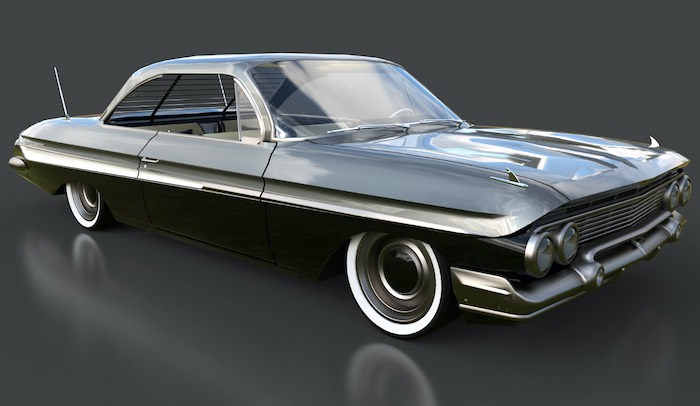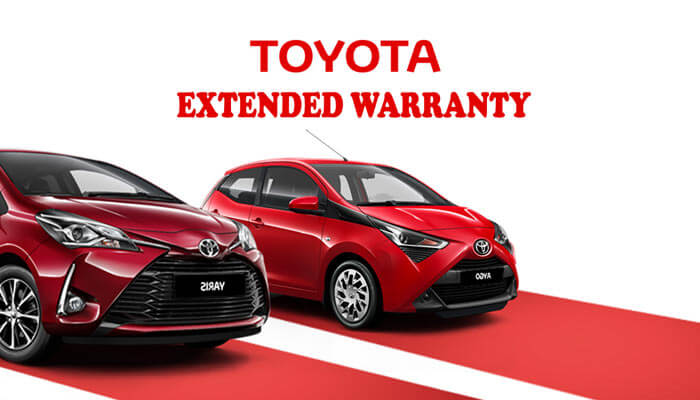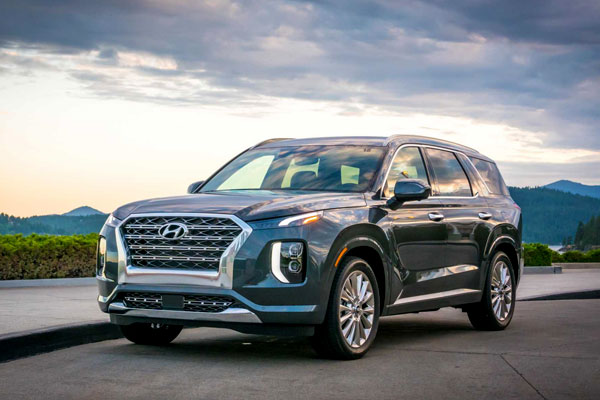Best Extended Warranty For Cars Over 100k Miles
Cars are increasingly reported to be lasting longer, up to 11 years, as compared to the 1995 average of only 8 years. While improving the efficiency and durability of the cars is their main task, manufacturers often find it hard to install longer lasting car parts. At some point, the car will start to wear off with some of the parts experiencing frequent break downs and damages.
For an average car manufacturer, the vehicle warranty can go up to 30,000 miles and past that the repair of the car is the duty of the owner. Most cars last long but start experiencing problems once they hit the 100,000 mileage. You can take good care of your car to keep it running smoothly but there comes a time when the parts which were not made for that distance start experiencing problems.
Appropriate protection plans need to be undertaken in order to secure you from financial worries when such a time comes, hence getting an extended warranty for cars over 100k miles might actually be the best choice for you. Read on to decide whether or not to get an extended auto warranty for a car that has exceeded 100,000 miles or not.
What Exactly is An Extended Warranty?
In a nutshell, an extended warranty is the coverage for your vehicle which you purchase after the initial and original manufacturer warranty limit or period has expired. However, it does not technically mean that you have to wait for the factory warranty to expire as you can get it at any point after the purchase of your vehicle.
What Extended Warranty Covers?
Before getting an extended car warranty cover, it is of much essence to understand what you will gain from the package. Be it for a new car or a car over 100k miles; you will have an easy time understanding what components are covered by the warranty. That said, below are some of the components covered by an extended warranty.
- Air conditioning
- All-inclusive coverage
- Powertrain issues
- Electrical maintenances
- Corrosion
- Engine repairs
- Radiator issues
- Transmission failures
- Fuel systems
- Bedliner damage
- Suspension
Exceptional extended warranties offer better coverage including cover for towing services, rental cars, gas delivery, 24/7 roadside assistance, and diagnostic fees.
Types of Extended Warranties
There are two major types of extended warranties, both depending on where you got it from. You can either receive it from the car manufacturers or through third-party vendors. Original equipment manufacturers, better referred to as OEM, are car manufacturers and brands such as Ford, Chevrolet, etc. Third-party vendors or warranty companies are insurance providers who are not directly affiliated with any particular brand of vehicle.
Manufacturer warranties
There are two types of warranties offered by the original equipment manufacturers (OEM):
- Powertrain Warranty – this type of warranty is responsible for the basic functionalities of the car; the engine and transmission. The engine and transmission of the car are insured against any defects in workmanship which would cause the engine or transmission of the car not to work as it should be.
- Bumper to bumper warranty – also known as ‘limited’, this warranty covers other parts of the car and not just the engine. It also covers most parts and items such as power seats, navigation systems, and many other systems and electronics.
These manufacturer warranties try to mimic when the car was brand new while also extending the mileage coverage. There may be other services such as roadside assistance which may be included.
Third party warranties
Aftermarket warranties often have the same type of coverage offered by original equipment manufacturers. The only difference is that they have more exclusions and other requirements that the former does not have. One of the common requirements includes a limitation on where to have your car fixed. Vehicle parts from other manufacturers can also be used as there is no guarantee that only OEM parts will be used.
Sometimes one needs to pay for the charges and costs incurred and gets reimbursed later by third-party warranties. This is one of the major differences between this type of warranties and manufacturer’s warranty. It looks like an extended car warranty. When considering a third party extended warranty for your car, you should be ready for a rather slow process of compensating you and fixing your car.
Questions to Ask Before You Get An Extended Warranty For Cars Over 100k Miles?
When you want to buy your car after a successful test drive, you will be ushered to the finance office to sign the paperwork. This is the point where the extended warranty question arises and you get confused about whether or not you should get it. Regardless of how the sales representative will try to talk you into getting an extended warranty, you should first fully understand why you need the warranty in the first place. In order to do that, there are a few questions you need to ask yourself;
1. What type of warranty does your vehicle already have?
Most new vehicles come with a manufacturer’s warranty. Most of them come according to years (up to 3 years) or mileage of up to a little bit over 30,000 miles. If you will be driving the car for only this period, do you really need to add another warranty on top of it? The main question you ought to ask yourself is, how long do you plan on driving?
If it is for only that period of time, then it would be wise to forego the extended warranty offer as it would just be a wastage of money. The only wise time you can get an extended warranty is when your vehicle’s manufacturer warranty has ended or is soon coming to an end. Furthermore, if you plan to drive it until the wheels fall off, get the extended warranty without thinking twice.
2. What are the inclusions and exclusions?
Before signing up for any extended warranty services, ask yourself on what is included and excluded on the warranty. The difference between the different types of warranties is slight but can prove to be very important. Ensure that the extended warranty you want to get covers the parts and systems which you are more concerned about. Always take your time to go through the paperwork to distinguish which services you get from subscribing to a particular warranty.
3. Who is behind the warranty?
Some auto dealerships offer extended warranties from third party companies that have different track records. The best extended warranty is one backed by the automaker, and not just by a third party company or the dealership itself. This is because manufacturer-backed extended warranties can be used at any dealership in the country while a dealership backed one will limit where you can get services.
4. What is your history with car repairs?
If you have owned vehicles in the past and have been having repair issues, it would be wise to look into those issues which have previously given your worries. For a road-hazard tire warranty, for example, it depends on how frequently you have gotten a flat tire. One of the causes might be probably because there is much debris on the roads you frequent. You may not require that particular coverage if you do not remember the last time you experienced such an issue. The cost of the out-of-warranty repairs also comes into consideration at this stage. Weigh the amount of the total repairs you have done in the past and analyze the total or average cost. Compare these figures with the total cost of the extended warranty you wish to subscribe to.
5. Do you have a set budget for maintenance costs?
It is wise to understand that most extended warranties do not cover scheduled maintenance costs and charges. Services such as oil changes, tune-ups, etc. are not covered. Moreover, items that may wear out such as windshield wipers and brake pads are not covered by extended warranties. It is good to ask yourself whether you have the resources to take care of these whenever the need arises.
6. What is the reliability rating for the car you intend on purchasing?
While many new-generation cars are built to last longer, some are more durable than others. Perform extensive research on the type of vehicle you wish to buy before actually signing the paperwork. How long can it go without you having to make any warranty claims? Ensure you go through its reliability history and get honest reviews from other users.
7. What is the time period of the cover?
When buying an extended warranty for used cars, it is important to identify whether the warranty coverage is from when the car is bought by you or when it was originally bought when it was still new. Always know what exactly you are paying for before signing any documents.
Benefits of Getting An Extended Warranty For Cars Over 100k Miles
Most cars that have hit the 100,000-mile mark can cease to become roadworthy when you fail to take care of it. Ensuring that the car is well taken care of can cost you tons of money. Below are some of the benefits you get from getting an extended warranty for your car.
1. Guarantee
You will remain guaranteed that your car will get repaired at minimal costs for you.
2. Saving on your finances
Repairing an old car can be quite costly especially when you pay for the services yourself. An extended car warranty ensures that you barely have to make any out-of-pocket payments hence saving on your finances in the long run.
3. Sense of security
When you get the best extended warranty for used cars, you get a sense of security that regardless of what happens to your car, it will get repaired. This is especially when you do not plan on leaving your car to rot in the garage any time soon.
4. The car gets an increased resale value
The notion that ‘old’ cars will fetch you enough money is a thing of the past when you get an extended warranty to help in maintaining the car. You will read more if your car is in good shape.
5. Comprehensive coverage
Unlike most auto insurance policies that only cover certain selected parts of a car or situations, extended warranties provide more comprehensive coverage for you.
Difference Between Extended Warranty and Mechanical Breakdown Insurance
Firstly, insurance and warranty are common interchangeably used words that have totally different meanings. However, they are both legitimate alternatives if you need to protect your car from uncertainties. This is basically because both offer compensation for unexpected repairs and mechanical problems resulting from normal wear and tear. Besides, both need monthly payment of premiums to remain active.
That aside, there are some notable differences between the two.
- For starters, there is a price difference. Pricing for individual coverage is affordable and flexible for an extended warranty, unlike mechanical breakdown insurance.
- Warranty companies that specialize in vehicle protection plans can provide an extended warranty while mechanical breakdown insurance is offered by business entities with due required licenses.
- Extended warranty can cover additional problems such as wear and tear that are not covered by mechanical breakdown insurance.
Based on the few differences outlined above, opt for an extended warranty as it provides additional benefits. It is a perfect option if you need comprehensive coverage for your vehicle.
Most Common Problems Encountered By Cars Over 100,000 Miles
As mentioned earlier, cars today are built to last longer, even past the 100,000 mileage mark. However, not all parts are made to last that long and there is a high likelihood that the parts will break down at any point. Below are some of the major common problems encountered by vehicles over 100,000 miles.
- Powertrain failure: Powertrain failures are the most common problems encountered in old vehicles. Car owners who have vehicles that have hit the 100,000 miles mark or have been in use for at least 10 years should start worrying about the powertrain at such a time.
- Faulty transmission: An old car that has hit over 100,000 miles can easily have a transmission failure. Buying a brand new transmission or fixing an old one can be quite costly. It is advisable to get an extended warranty in order to avoid paying such hefty charges. When the odometer hits a 6-digit figure, it is recommended that you change the transmission fluid.
- Electronic and other technological issues: The technology in most modern cars can be very expensive to repair if damaged or broken. As a car age, the fuel system might have issues and a basic fuel filter can make you dig deep into your pockets. In order to save yourself from all that trouble, getting an extended warranty can help you out, in the long run, to save on your finances.
- Wear and tear: A car that has hit the 100k mileage mark has definitely gone places. This means that some of its parts will have already worn out. Once you start off by replacing one, be sure that you will replace more parts in the near future. Parts such as brake pads are the more prone to wear and tear.
Essential Maintenance For Your Old Car
If you want to use the car longer, undertaking basic maintenance is important to keep it running at its best. Frequent maintenance is prudent to avoid hefty repair costs down the road. That said, below are some essential care procedures, repairs as well as swaps you should always observe.
- Engine fluids – engine fluids should be checked regularly to prevent water pump, heater core, and radiator issues. You should regularly swap hydraulic engine oil for this purpose. However, this shouldn’t be done to any vehicle. For instance, ask detailed information when buying an old vehicle as changing the original fluid can cause engine issues.
- New spark plugs – spark plugs are quite pricey but don’t need to be changed frequently. This can be done after every 30,000 to 100,000 miles.
- Rotate tires – as a rule of the thumb, rotate the tires to ensure an even wearing after every 6,000 miles.
- Check the battery – always check your car battery for signs of loose connection or corrosion. Test and replace the battery after 3 years.
- Regular maintenance – regularly scheduled maintenance includes engine performance checks, belt and hose replacement, and others to improve car state and ascertain durability. Brake fluid, for instance, ought to be changed after covering 36,000 miles.
Reliable Cars That Can Go Over 150,000 Miles
Contrary to the long-held belief among vehicle buyers and sellers that the value of a car declines dramatically once it surpasses the 100,000 miles mark, Edmund reports states otherwise. Simply put, the value of old cars has increased, especially for SUVs. According to CheatSheet, the following vehicle models can take you more than 300,000 miles without major problems.
- Honda Civic
- Honda Accord
- Honda Odyssey
- Chevrolet Silverado 1500
- Toyota Corolla
- Toyota Highlander
- Ford Escape Hybrid
- Ford F – 150
- Toyota Tacoma
- Subaru Legacy and Outback
That aside, there is no single car model without issues, and thus, the models mentioned must have slight issues. Some of the common repairs for the vehicles above with average repair costs are outlined below.
| Vehicle Make | Problem | Correction | Cost |
|---|---|---|---|
| Honda Civic | Fractured exhaust Cracked catalytic converter | Replacement. No repair. | $1176 and above |
| Honda Accord | Faulty AC | AC replacement | From $545 |
| Chevrolet Silverado 1500 | Inaccurate fuel meter | Fuel pump replacing | $970 and above |
| Toyota Corolla | Faulty starter | Starter replacement | $400 and above |
| Toyota Highlander | Faulty oxygen sensor | Oxygen sensor replacement | $820 and above |
| Toyota Tacoma | Lesser ball joint problems | New ball joint | $220 to $520 |
| Ford F – 150 | Ignition coil failure | Ignition coil replacement | $430 to $700 |
Tips to Consider Before Purchasing An Extended Warranty
Before putting your signature down on the paperwork, there are a few tips you need to consider in order to get the best out of an extended warranty.
- Read the fine print well: Before giving a nod to ensure your car, go through the paperwork and understand the type of coverage your car will receive. Some of the worst extended auto warranty companies will try and dupe you into signing for something which will not be helpful to your car in the long run. Be cautious of hidden charges too.
- Go big: Older vehicles tend to experience more problems. If you decided to get a cover, get more comprehensive coverage. This will give you more security.
- Have the car’s repair records with you: If you know the major problems the car has experienced in the past, you might as well predict what will happen in the future. This helps you make an informed choice.
Comparing Extended Warranty Companies for Cars Over 100k Miles
With your vehicles manufacturer’s warranty almost expiring, you should be certainly worried about the next step. Whilst there is an option of extending coverage with your manufacturer, you can opt for various extended warranty companies available for their services. If you are sold on to this idea, you should begin shopping for the best company available.
- Begin with your vehicle – perhaps a logical place to start your search before looking at the various providers and plans offered is thinking about what your vehicle needs. Does it have repair history? Is it reliable? Answering these will help you understand the scope of coverage required. Go for a comprehensive cover if it has a history of breaking down or has an aging issue.
- Check the providers – the next step is checking out the various providers. Some extended warranty companies offer better, reputable and reliable services compared to others. Inquiring for their reputation is a sure way of uncovering this. That said, check out the comparison chart below compares some of the warranty companies.
| AA Auto protection | AutoAssure | Endurance | Carchex | Delta Auto Protect | Protect My Car | |
|---|---|---|---|---|---|---|
| Operational Years | 30 | 8 | 13 | 20 | 4 | 13 |
| Instant Quote | Yes | Yes | Yes | Yes | No | Yes |
| BBB Accreditation | No | No | No | Yes | No | No |
| BBB Rating | A | A | B | B+ | B | A |
| BBB Complaints Within the Last 36 Months | 100 | 588 | 401 | 83 | 515 | 101 |
Other essential things to look into when searching for an extended warranty include:
- Inclusions – they are the components covered by the extended warranty. Most plans have a list of included components that their local repair site will handle. This gives you an easy way to compare various services offered by different companies.
- Exclusions – this highlights what the extended warranty company won’t cover. Comprehensive plans simply ignore the components they don’t cover to make it easy for potential customers to understand their plans.
- Limitations – checking on the eligibility limitations is crucial if you want a specific plan for your vehicle. Old vehicles have more limitations due to frequent repair issues. Nonetheless, most companies offer high-mileage coverage plans that address these challenges.
- Coverage period – you should pay extra attention to the time the extended warranty cover lasts. Most periods are quantified in mileage and years.
Final Word
Taking good care of your car is not a choice when you want it to serve you well. Save on your finances by getting an extended warranty cover today!





